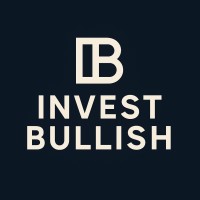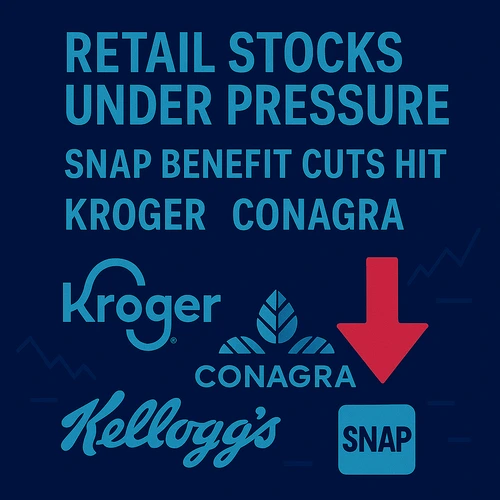Policy Shocks Domestic Grocery Sales
As part of the “One Big Beautiful Bill,” the U.S. federal government has implemented a $9 billion reduction in SNAP (food assistance) funding. This change is expected to reduce discretionary spending among low-income households, hitting grocery and staple brands hard. The market reaction has been swift and negative.
2. Company Profiles & Key Metrics
Kroger (NYSE: KR)
- Price (Jul 17 Close): $50.62
- Market Cap: $42.5 billion
- Q2 Revenue: $35.4 billion (+2.3% YoY)
- Q2 EBITDA: $2.6 billion (flat YoY)
- Net Income: $1.2 billion (+0.5% YoY)
- Free Cash Flow: $1.4 billion
- Dividend Yield: 2.2%
Conagra Brands (NYSE: CAG)
- Price (Jul 17 Close): $31.28
- Market Cap: $17.8 billion
- Q2 Revenue: $2.8 billion (–1.0% YoY)
- Q2 EBITDA: $430 million (–4.5% YoY)
- Net Income: $210 million (–7.8% YoY)
- Free Cash Flow: $290 million
- Dividend Yield: 2.9%
Kellogg (NYSE: K)
- Price (Jul 17 Close): $64.15
- Market Cap: $21.6 billion
- Q2 Revenue: $3.1 billion (+1.5% YoY)
- Q2 EBITDA: $600 million (–2.0% YoY)
- Net Income: $280 million (–3.5% YoY)
- Free Cash Flow: $520 million
- Dividend Yield: 3.9%
3. Impact Analysis: Consumer Vulnerability
- SNAP cuts disproportionately impact lower-income urban and rural areas, where spending on staples like grains and canned goods comprise larger budget shares.
- Kroger and Conagra—with high exposure to low-cost consumer staples—are most at risk for margin compression.
- Kellogg, reliant on packaged goods, faces reduced consumer flexibility to absorb price increases.
4. Market Reaction & Flow Metrics
- Kroger: down 2.0% in the past two sessions
- Conagra: –3.2%
- Kellogg: –2.5%
- Invesco Dynamic Food & Beverage ETF (PBJ): –1.8% over 3 days
- SPDR Consumer Staples ETF (XLP): –1.4% cumulative retreat
5. Strategic Implications for Retailers
- Revenue Pressure
Reduced SNAP budget may translate to 1–2% lost sales—directly impacting companies with low-income customer bases. - Pricing vs. Promotion
Retailers may need to shift from premium pricing to promotions, compressing margins further. - Private Label Advantage
Discount and private-label products may fare slightly better—but at the cost of lower per-unit margins.
6. Risk Factors & Catalyst Watch
- Counterparty Response: State-level top-ups (for SNAP cuts) could offset some federal reductions.
- Inflation Pushback: Rising food prices might chew into discretionary budgets further.
- Retail Earnings Guidance: Q3 outlooks will be key—update expected in early August.
7. Forward Scenarios
| Scenario | Kroger | Conagra | Kellogg |
|---|---|---|---|
| Bull (Assistance offset by state help) | Stable sales → Price near $55 | Margins steady → $34–35 | Breadth promo mitigates loss → $68 |
| Base (2% drop in sales) | $48–52 range | $29–32 | $62–65 |
| Bear (4%+ revenue fall) | $45 | $27 | $60 |
8. Bottom Line
The SNAP cut is a material policy shock for staples-focused consumer stocks. While earnings impact may be modest in isolation, it underscores heightened margin sensitivity in companies serving price-conscious consumers.
Takeaway
- Short term: Trim positions or hedge exposure ahead of Q3 earnings.
- Mid-term: Monitor state-level offset policies and food inflation trends.
- Long term: Private-label resilience and promotional agility will determine recovery paths.

